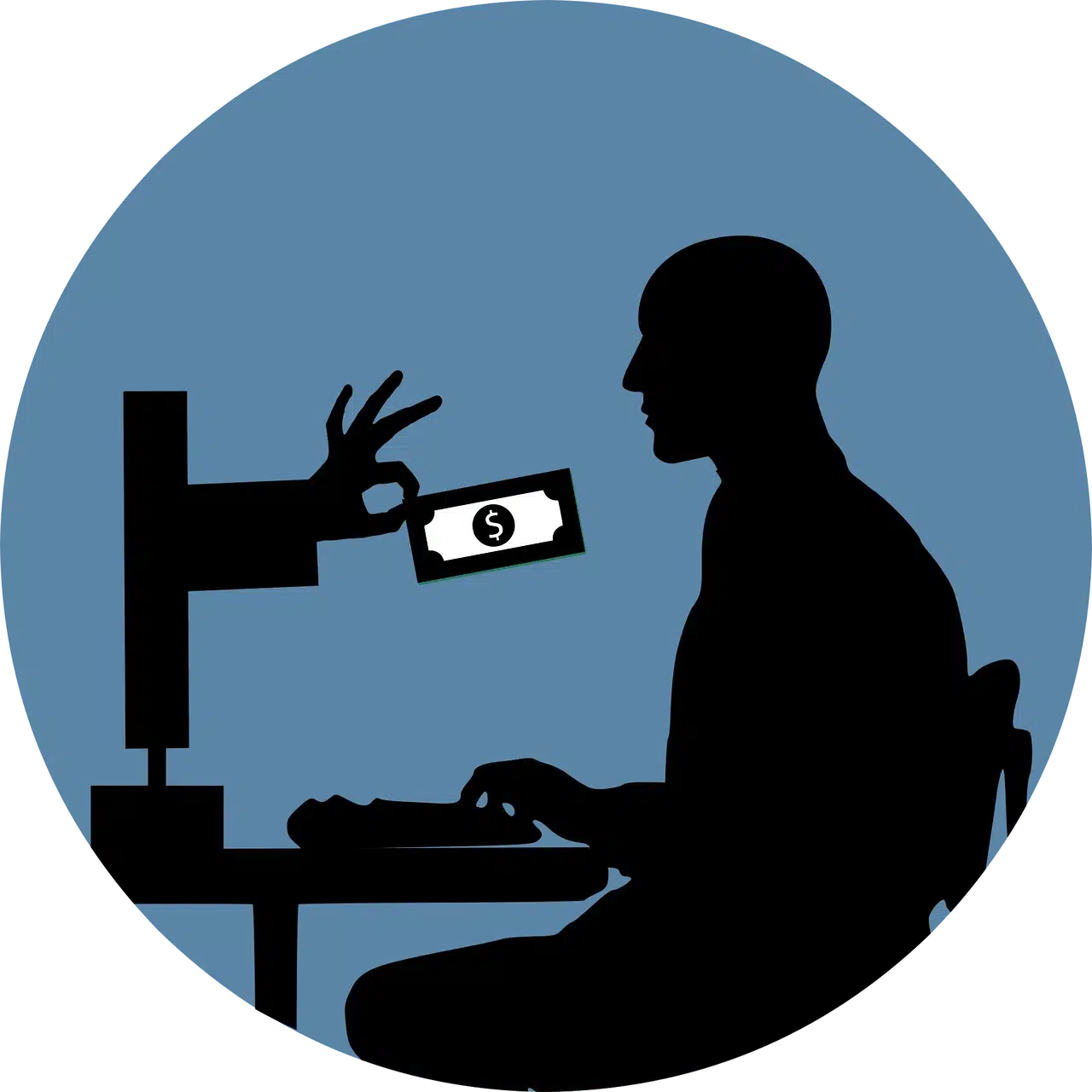Good Reasons to Borrow Money: Top Excuses

In today’s world, understanding the reasons behind borrowing money is crucial for making sound financial decisions. Many individuals face financial challenges that create a real need for assistance. Borrowing money isn’t just for emergencies; it can also be a useful tool for managing education expenses or handling unexpected costs.
This article explores when borrowing is not only acceptable but sometimes necessary. It’s about identifying smart reasons to borrow without negatively impacting your financial stability, showing how borrowing for the right purposes can offer lasting solutions to financial issues.
Key Takeaways
- Understanding borrowing reasons can ease the stress of seeking financial assistance.
- Legitimate reasons for loans include unexpected expenses and educational pursuits.
- Friend and family loans may offer a less costly alternative to personal loans.
- Establishing a repayment plan can alleviate concerns about debt and ensure sustainability.
- Building an emergency fund helps alleviate anxiety and reduce reliance on loans.
The Need for Financial Support
Understanding why you need financial support can help you communicate your needs more effectively. Many people face situations where they don’t have enough savings to cover essential expenses, leading them to borrow money. Whether it’s for unexpected emergencies or achieving personal milestones, having clarity about your reasons for borrowing can help you present a strong case to potential lenders.
Understanding the Motivation Behind Borrowing
It’s crucial to identify your motivation for seeking financial assistance. Many individuals encounter unforeseen challenges that don’t align with their current budget. Common reasons for borrowing include:
- Job Loss: Losing a job can make it difficult to cover monthly expenses. In July 2024, the U.S. unemployment rate rose to 4.3%, leaving many people struggling to make ends meet.
- Unexpected Medical Bills: Health emergencies can lead to costly medical expenses that insurance may not fully cover.
- Urgent Home or Vehicle Repairs: Sudden breakdowns or damages often require immediate repairs, which can be costly.
- Educational Expenses: Tuition, books, or other school-related costs can lead to a need for additional funds.
- Major Life Events: Weddings, moving costs, or other significant events may require financial assistance to manage expenses effectively.
Understanding these motivations will allow you to make informed borrowing decisions and clearly articulate your needs when seeking financial support.
Common Situations Requiring Financial Assistance
Some situations where people need to borrow money fast include:
| Situation | Description |
| Medical Emergencies | Unexpected medical bills, like surgery |
| Vehicle Repairs | Quick fixes for car problems |
| Home Emergencies | Urgent home repairs, like leaks |
| Job Loss | Living costs while looking for a new job |
| Educational Expenses | Money for school supplies |
In these tough times, people might borrow from family, friends, or lenders. Knowing these situations helps you make better choices about getting financial help.
Good Excuses to Borrow Money
In today’s world, understanding why you need a loan is crucial. Unexpected expenses can arise at any time, putting your finances under pressure and potentially leading to emergencies that require quick access to cash.
When Facing Unexpected Expenses
Unexpected costs, such as car repairs, medical bills, or urgent home maintenance, can easily disrupt your budget. In these situations, borrowing money can be a practical solution to avoid further financial hardship.
Common unexpected expenses include:
- Car breakdowns
- Sudden medical bills
- Urgent home repairs
Taking out a loan for these needs can help you maintain financial stability, demonstrating that you’re prepared for life’s surprises and know how to manage them effectively.
For Education and Skill Enhancement
Investing in your education is a smart move. Loans for school or skills like coding can lead to better jobs. 91% of businesses and 81% workers agree that upskilling and reskilling can significantly enhance workplace productivity.
Education boosts your skills and opens new career paths. Here are some education options:
| Type of Education | Typical Costs | Potential Return on Investment |
| Traditional College Degree | $20,000-$50,000 | Higher salaries, diverse career options |
| Coding Bootcamp | $100-$20,000 | High-demand tech jobs, quick entry into employment |
| Vocational Training | $5,000-$15,000 | Immediate job ready skills, industry certifications |
These choices are good reasons to borrow money. They’re investments in your future. With a solid plan and clear repayment talks, you can show lenders you’re serious about repaying. This sets you up for a better financial future.
Using Money to Generate Future Income
Borrowing money can be a good option to improve your finances and boost your future earnings. By investing in education or starting a business, you open doors to more money. Knowing about personal development loans and business loans can help you make better choices.
Investing in Yourself through Education
Investing in education is a key decision for your career. Educational loans are often seen as good debt because they invest in your future. Studies show that higher education leads to better jobs and higher pay, making education crucial.
Getting degrees or certifications in in-demand fields boosts your skills and pay. It’s a smart way to increase your earning power.
Starting a Business or Side Hustle
Starting a side hustle or a business is a great reason to borrow money. Small business loans help with initial costs, marketing, or inventory. A solid business plan shows lenders how their money will help your business succeed.
Entrepreneurial finance can lead to more money and wealth. It’s a promising path for those who want to start their own business.
| Use of Loans | Type of Loan | Potential Outcomes |
| Invest in Education | Personal Development Loans | Higher earning potential and job opportunities |
| Start a Business | Business Loans | Wealth accumulation and economic growth |
| Grow a Side Hustle | Small Business Loans | Increased income sources and financial stability |
Handling Emergency Situations
Emergencies can pop up without warning. It’s key to have a plan for emergency money needs. For quick fixes to your home or car, fast financial help is crucial. Accidents or sudden breakdowns need quick fixes to avoid more costs.
For example, a burst pipe or a broken engine must be fixed right away. This ensures your home is safe and your car runs well. Borrowing money can give you the quick cash you need for these urgent repairs.
Addressing Immediate Home or Car Repairs
Emergency repairs need fast action. Having money ready lets you act quickly, avoiding higher costs later. Situations like:
- Roof leaks needing quick fixes
- Heating system failures in winter
- Flat tires or engine breakdowns
Ignoring these problems can cause bigger issues, hurting your finances. Using credit or personal loans for repairs helps you stay proactive. It keeps your home and car in good shape.
Covering Medical Expenses
Medical emergencies can be scary, especially the financial worry they bring. Unexpected medical bills can come from accidents or sudden health problems. Many families face costs not fully covered by insurance.
Getting a loan for medical bills can ease the financial stress. It lets you get the treatment you need without worrying about money. Being ready for the unexpected makes handling emergencies easier. Whether it’s for home fixes or medical bills, knowing your options helps you stay financially stable.
Managing Debt and Financial Overwhelm
Many people today feel stressed about their money. Around 72% of Americans deal with money stress often. Finding ways to manage this stress is key.
Debt Consolidation as a Viable Option
Debt consolidation can simplify your money troubles. It combines several debts into one, often with lower interest rates. This makes monthly payments easier to handle.
This method helps organize your finances. It’s a smart way to borrow money. Low-interest personal loans are especially helpful for paying off credit cards faster.
Reducing High-Interest Credit Card Debt
High-interest credit card debt can be overwhelming. Personal loans for debt can offer relief. These loans have lower interest rates, making it easier to pay off cards quickly.
Using these loans is a smart step towards financial control. It helps reduce stress and gets you back on track financially.
| Debt Type | Average Interest Rate (%) | Potential Benefit of Consolidation |
| Credit Card Debt | 24.74 | Lower monthly payments |
| Personal Loans | 12.42 | Fixed payments and lower rates |
| Student Loans | 6.53 | Potential deferment or income-driven plans |
| Auto Loans | 6.84 | Consolidation flexibility |
By using these strategies, you can face your financial challenges head-on. This leads to a more stable and less stressful financial future.
The Importance of a Repayment Plan
Creating a solid repayment plan is key when you borrow money. It helps you manage your spending and meet your loan payments. This approach keeps your finances stable and shows lenders you’re reliable.
Creating a Sustainable Budget
When planning for loan payments, think about all your monthly costs and income. Here’s how to make a good budget:
- Identify your income: Add up all your monthly earnings.
- List your expenses: Note down both fixed and variable costs.
- Allocate repayment funds: Set aside money for loan payments.
- Monitor spending: Keep an eye on your spending to stay on budget.
Smart budgeting helps you manage loans well and avoid more debt.
Communicating Your Intentions Clearly
Talking openly with lenders about your finances can ease their worries. When discussing repayment plans, be clear about your ability to pay. Here are some tips:
- Be honest about your financial situation: Share your income, expenses, and any factors that might impact your payments.
- Outline a repayment timeline: Show a realistic plan for paying off the loan, proving your commitment.
- Express your financial goals: Talking about your financial management goals can build trust with your lender.
Being open and honest builds trust with lenders. This can open doors for future loans.
Conclusion
In this summary, you’ve learned about good excuses for loans. These excuses can help when you need financial help. Whether it’s for unexpected bills or education, knowing your options is key. Borrowing can be helpful if you plan carefully and can pay back on time.
Borrowing isn’t always bad. For instance, student loans can lead to higher earnings later. A personal loan with a good interest rate can help you reach your goals. But, it’s important to know the costs, like high credit card rates or cash advance fees, to stay financially healthy.
The path to financial help shows the need for careful planning. Understanding the risks and benefits of borrowing helps you make smart choices. Managing your borrowed money well can avoid debt and improve your credit score for the future.
FAQ
What is a good reason to borrow money?
A good reason to borrow money can include emergency expenses, such as medical bills, home repairs, or unexpected job loss. These situations often require immediate financial assistance that may not be covered by savings or an emergency fund.
When might I need to borrow money for home repairs?
You may need to borrow money for home repairs if you encounter urgent issues, such as a leaky roof or broken plumbing, that cannot wait for your next paycheck. Taking out an emergency loan can provide the funds needed to address these critical repairs promptly.
How can I borrow money from friends or family members?
To borrow money from a friend or family member, it’s essential to communicate openly about your needs, the amount required, and how you plan to repay them. Establishing a clear payment plan can help maintain trust and avoid misunderstandings.
What are some emergency reasons to borrow money?
Emergency reasons to borrow money often include unexpected medical bills, urgent home repairs, or significant car repairs. These situations can create financial strain, making it necessary to seek a personal loan or emergency personal loan.
What is a payday loan, and when should I consider it?
A payday loan is a short-term loan typically due on your next payday. You might consider it if you have an urgent financial need but should be cautious due to high interest and fees associated with these loans. It’s often better to explore other options first.
Can I create an emergency fund with a personal loan?
While it’s typically not ideal to borrow money to create an emergency fund, a personal loan can be used to cover immediate expenses while you work on building a financial cushion. Always aim to repay the loan responsibly to avoid falling into a cycle of debt.
What should I know about the costs associated with payday loans?
Payday loans charge fees that can lead to high interest rates. It’s important to understand the total cost before borrowing, as these loans may not be the best deal for your financial situation, especially if you are living paycheck to paycheck.
How can I find a lender for an emergency loan?
To find a lender for an emergency loan, research financial institutions that offer personal loans or emergency loans tailored to your credit history. Compare terms, interest rates, and any origination fees to ensure you get the best deal possible.
What are the risks of borrowing money for non-emergency reasons?
Borrowing money for non-emergency reasons can lead to a cycle of debt, especially if you do not have a solid repayment plan. High-interest loans can exacerbate financial problems, making it challenging to manage future expenses and maintain good credit.






